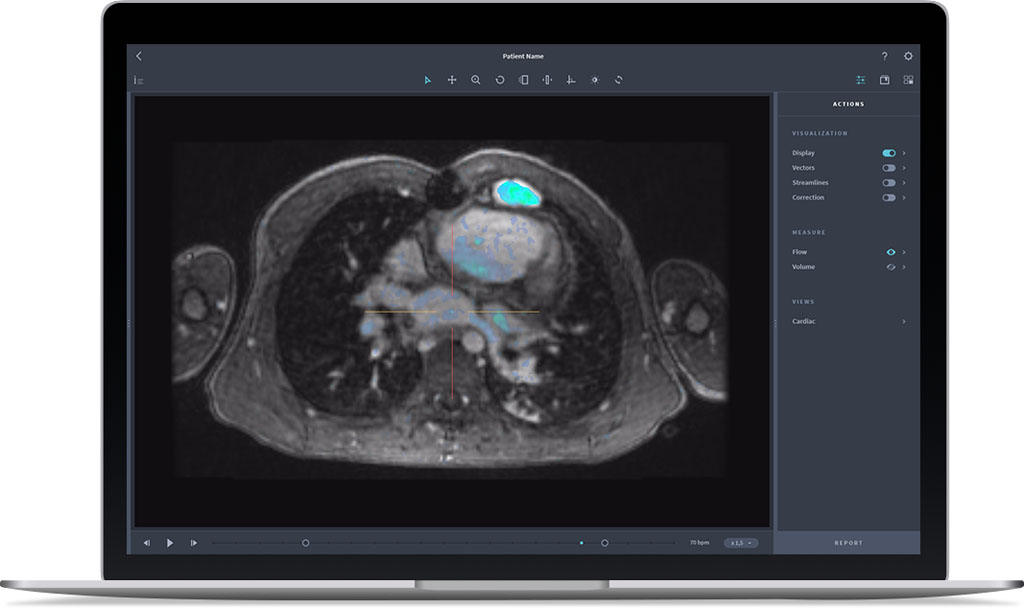MRI Analysis Software Quantifies Cardiac Flow
By MedImaging International staff writers
Posted on 15 Dec 2016
Technologies used to develop three-dimensional (3D) video games can now be used to noninvasively quantify cardiac flow and measure heart function in clinical settings.Posted on 15 Dec 2016
The technology, the result of a collaboration between GE Healthcare (GE, Little Chalfont, United Kingdom) and Arterys (San Francisco, CA, USA), analyzes multislice, multiphase, and velocity-encoded magnetic resonance imaging (MRI) scans in four dimensions (4D) in order to assess blood flow to the heart and its major blood vessels. The software, dubbed ViosWorks, has applications that range from congenital heart disease (CHD) and aortic and valvular disease to shunts and collateral vessels.

Image: The ViosWorks uses MRI scans to analyze heart function (Photo courtesy of Arterys).
ViosWorks simultaneously provides key elements of a cardiac MRI exam, including anatomy, function and flow, thus helping to solve several cardiac MRI challenges at once. By operating in a virtual seven dimensions (three in space, one in time, and three in velocity direction), the datasets captured at each time point during the cardiac cycle allow the software to yield high resolution, time-resolved images of the beating heart, supplying a measure of the speed and direction of blood flow at each location.
A key element of ViosWorks is the Arterys cloud-based, machine-learning platform that is designed to deliver ultra-fast visualization and quantification with automatic image analysis. Arterys uses software as a service (SaaS) analytics powered by potent algorithms that allow large datasets to be evaluated in real-time via the cloud-based software, significantly reducing the time spent on data processing and helping promote the new visualization routines. The system is compatible with images from both 1.5-tesla and 3-tesla MRI scanners.
“We believe that our 4D Flow software represents a significant advance in medical imaging, making scans more accessible, useful, and practical for patients and medical professionals,” said Fabien Beckers, CEO of Arterys. “It's not possible for physicians to process all this data themselves. We take advantage of neural networks to process all this data. We have reached the limit on how much a single computer and a single doctor can do with data.”
In the future, GE Healthcare and Arterys hope that machine learning can be used to extract insights from aggregate MRI data analyzed from large numbers of scans taken from different (anonymous) individuals. The Arterys analytics software would search for image features that can be used to predict the advance of a heart condition, and the likelihood that a certain treatment will be successful. Both Arterys and GE Healthcare also plan to extend the use of their technologies to illnesses beyond heart disease, such as imaging brain and musculoskeletal structure, and gaining diagnostic insights in the treatment of diseases such as cancer and multiple sclerosis.
Related Links:
GE Healthcare
Arterys














.jpg)